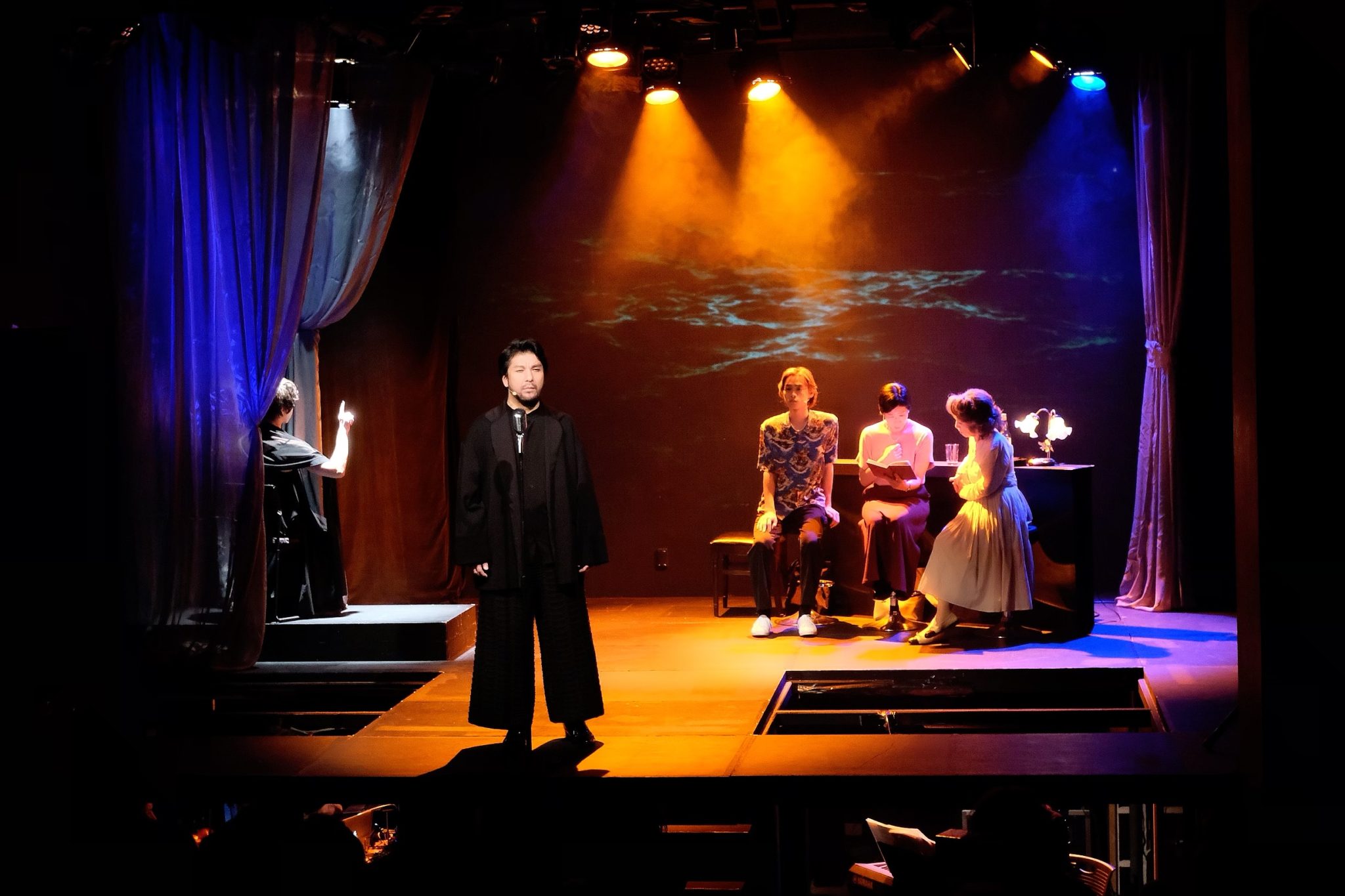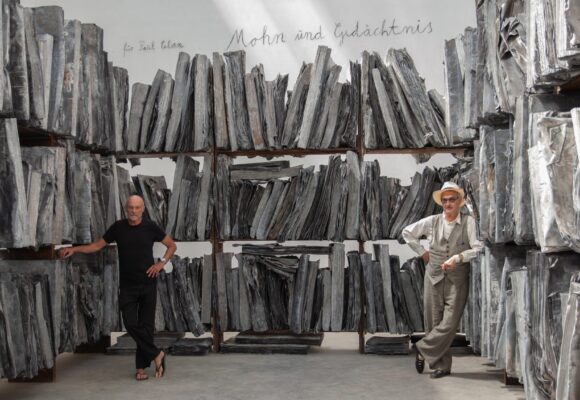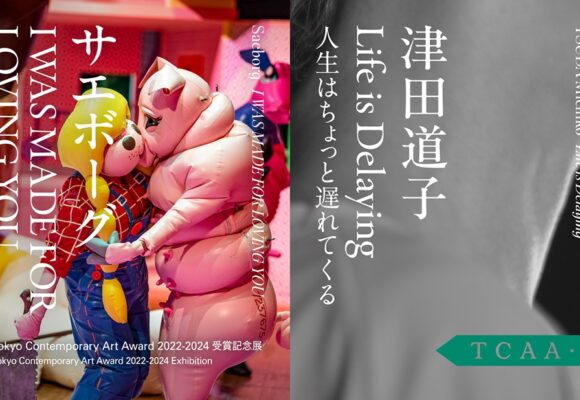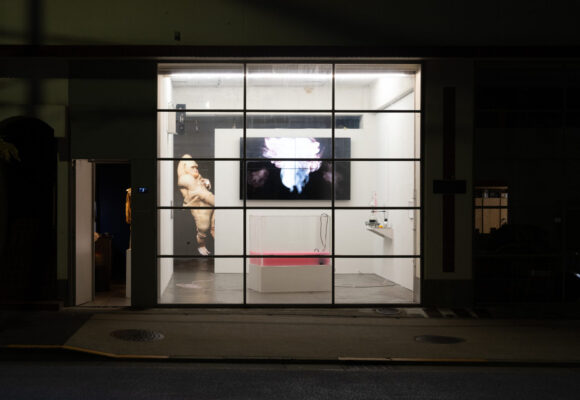Born in Tokyo. Graduated Keio University Faculty of Literature, Department of Philosophy, aesthetics and art history major. Since 1990s, She has been at the forefront of the Japanese art scene as a writer / art journalist / art producer. 2003 spring, launched an art bar TRAUMARIS in Roppongi, was moved to Ebisu NADiff building, as an alternative space TRAUMARIS where art exhibitions, live performances, food and drink can be enjoyed. After closed the space, is currently involved in various art activities beyond the boundaries of the genre as an art producer. A jury for Yokohama Dance Collection’s competition from 2011 to 2016. A producer of Dance and Nursery!! Project since 2016. Established RealJapan project as a co-director. http://www.traumaris.jp Photo by Mari Katayama
The musical play “Do You Know Édith Piaf?” was first performed at Shinjuku Theatre Tops in April this year, and returned to the same venue in September.
Conceived by and starring Seiji Semenov, a chanson singer with Jewish-Russian roots, the production was directed by Tsuyoshi Sugiyama, who has served as artistic director of the National Youth Theatre of Vietnam, with music by Toru Yamanaka of Dumb Type and voice acting by the ballet dancer and actor Yasuyuki Shuto. For the return performance, Sankai Juku butoh dancer Norihito Ishii and actor Kanako Nishida joined the cast, with casts from a variety of fields also appearing on different days. The performance I saw featured singer/actor Jun Anna and Amon Hirai.
The setting is a bar in modern-day Shinjuku. A young bartender comes across a book about Édith Piaf, and over the course of an evening begins to realize a great many things through her numerous classic songs.
2023 will mark 60 years since the death of Édith Piaf, who remains one of France’s most beloved singers. Including through her contribution to the resistance during World War II, she has been admired as a symbol of the spirit of France, a country whose citizens rose up on their own to achieve freedom.
It’s said that the only time traffic in Paris came to a complete halt after the war was during Piaf’s funeral, when the entire city was in mourning. On the other hand, the Catholic Church reportedly refused to celebrate a farewell mass for the woman who was raised in a brothel and lived a life of unbridled love.
Piaf’s multifaceted persona and life, throughout which she absorbed both love and criticism with her petite body, is represented here by way of two images. One is the singer telling her life story in her own words. Shuto’s restrained recitation and Ishii’s butoh dance, in which he conveys the tale solely with the frame of his back and arms, combine for an impassioned account of a tumultuous life. The other image is a story of a woman’s life, sung through Piaf’s chansons by a young man living in the present and the patrons who visit his bar.
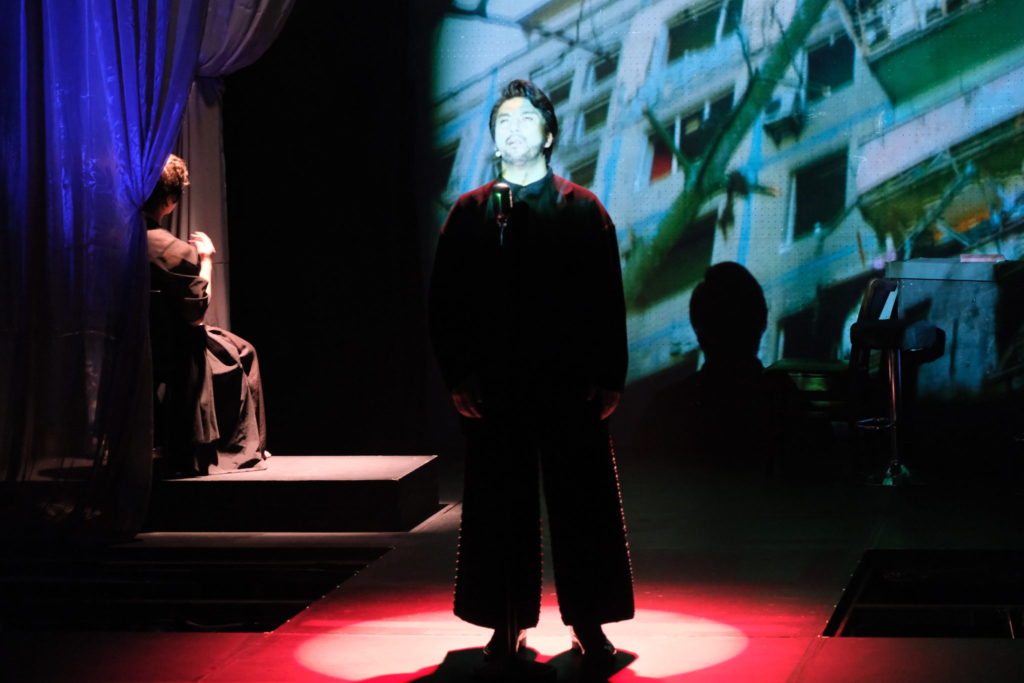
This play was created with the assumption that it would be seen by people who had never heard of Édith Piaf or listened to chanson before. Chanson, meaning “song” in French, is not an inaccessible genre of music in the first place, as is clear from its dictionary definition: “A generic term for secular, lyric-driven French songs, particularly songs with medieval bardic roots.”
In Japan, too, chansons translated and sung in Japanese, including those by Fubuki Koshiji, who is said to have been struck by Piaf’s songs when she visited Paris in 1953, comprise a distinct genre with committed fans, just as the case is with kayokyoku and enka. Chanson bars such as Gin-Pari in Ginza produced artists such as Akihiro Miwa and Masako Togawa, and this urban culture of live performances—losing oneself in song with a glass of wine in hand—has been passed down from one generation to the next.
And it’s precisely in our grim times and hardship-filled society that chansons, which speak in one’s own language about both the sincere anguish of life and the presence of hope, should transcend time and attract people.
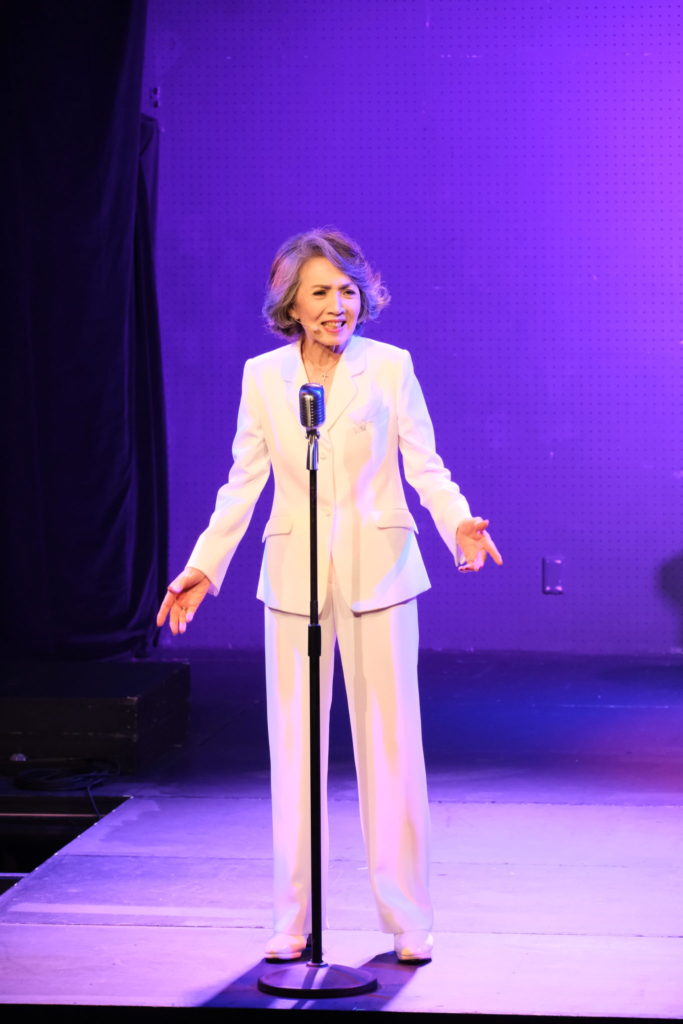
The main performer that evening, Jun Anna, is another artist who is familiar with the joys and sorrows of an uncertain life. A former star of the Takarazuka Revue, Anna left the company in 1978 and was working as a musical actor when in 2000 she was diagnosed with the autoimmune disease SLE, and over the years has struggled with a variety of illnesses. As she recovered, she gradually resumed her activities, and now—at the age of 75—performs with ever greater vitality as a chanson and jazz singer. Ever since I first encountered Anna on stage at the Tokyo Takarazuka Theater when I was in elementary school, I’ve been fascinated by her voice, so full of luster and depth. Jun Anna, who once stared death in the face and yet, in a subdued tone, celebrates the incomparable splendor of living now, is a unique presence—and a singer who drives home the necessity of singing Édith Piaf’s songs.
Piaf’s songs cover all aspects of one woman’s life, from her childhood in poverty to her untimely death. It might appear difficult, especially for young singers today, to capture Piaf’s entire life at once, and some of the songs could seem too dramatic and charged for today’s generation.
However, when a singer is not bound by such things, but truly longs to sing, even if his or her own story has only come halfway, it may be a sign that the time to belt out a chanson is ripe. The flavor and richness of a chanson comes not so much from technique or the certainty of lyrical interpretation, but rather from the thing that “makes a song a song” that emerges when the singer takes the stage. This is the very task that people who look forward to live performances, regardless of genre, want to entrust to artists.
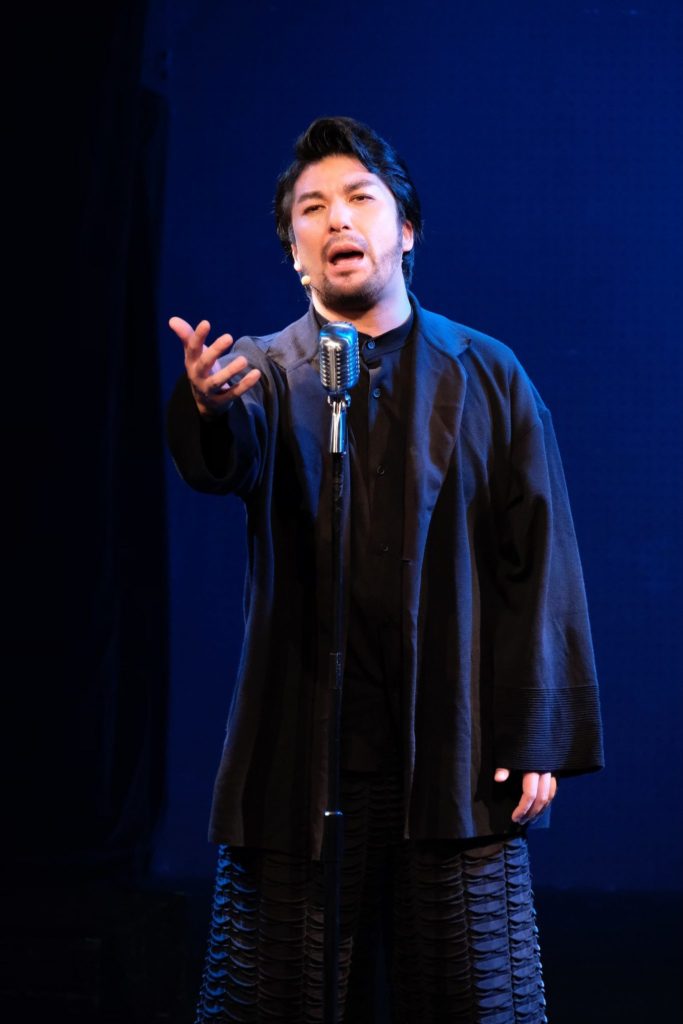
“Do You Know Édith Piaf?” is not the only thing that Seiji Semenov, a contemporary chansonnier, is working on. He organizes a series of performances that features songs “tossed around by war,” and is also preparing a project that seeks to revive the cabaret culture that flourished with Paris at is center at the turn of the nineteenth century. Before the age of TV and the internet, people shared the joys and sorrows of life with others in cafes and cabaret halls, through songs. Rather than being at the mercy of the outrageous visions of billionaires on social media, why don’t we open our hearts to each other through the medium of song, and entrust our irrepressible raw joys and sorrows to the vehicle of expression? That’s the realization this work of musical theater brings about.
INFORMATION
“Do You Know Édith Piaf?”
Dates: September 6–11, 2022
Venue: Shinjuku Theater Tops
Direction: Tsuyoshi Sugiyama (Artistic Director, The National Youth Theatre of Vietnam)
Music: Toru Yamanaka (Dumb Type)
Cast: Seiji Semenov, Norihito Ishii (Sankai Juku), Kanako Nishida, Jun Anna (Sep 10), Yoshiaki Umegaki (Wahaha Honpo; Sep 8 & 9), Rolly (Sep 11), Ken Shimazu (Gekidan Bancho Boys ☆Next; Sep 8 & 9), Amon Hirai (Sep 10 & 11), Louis Regent (Sep 6 & 7), Yohei Yamazaki (Ekoda no Girls; Sep 6 & 7)
Voice acting: Yasuyuki Shuto
Musician: Louis regend(vn), Agnès Akiko(pf, Sep 11), Nobuko Kawaguchi(pf, Sep 10), Masaharu Kondo(pf, Sep 8 & 9) ,Ikue Takino(pf, Sep 6 & 7)
Organized by: SEIGASAI


